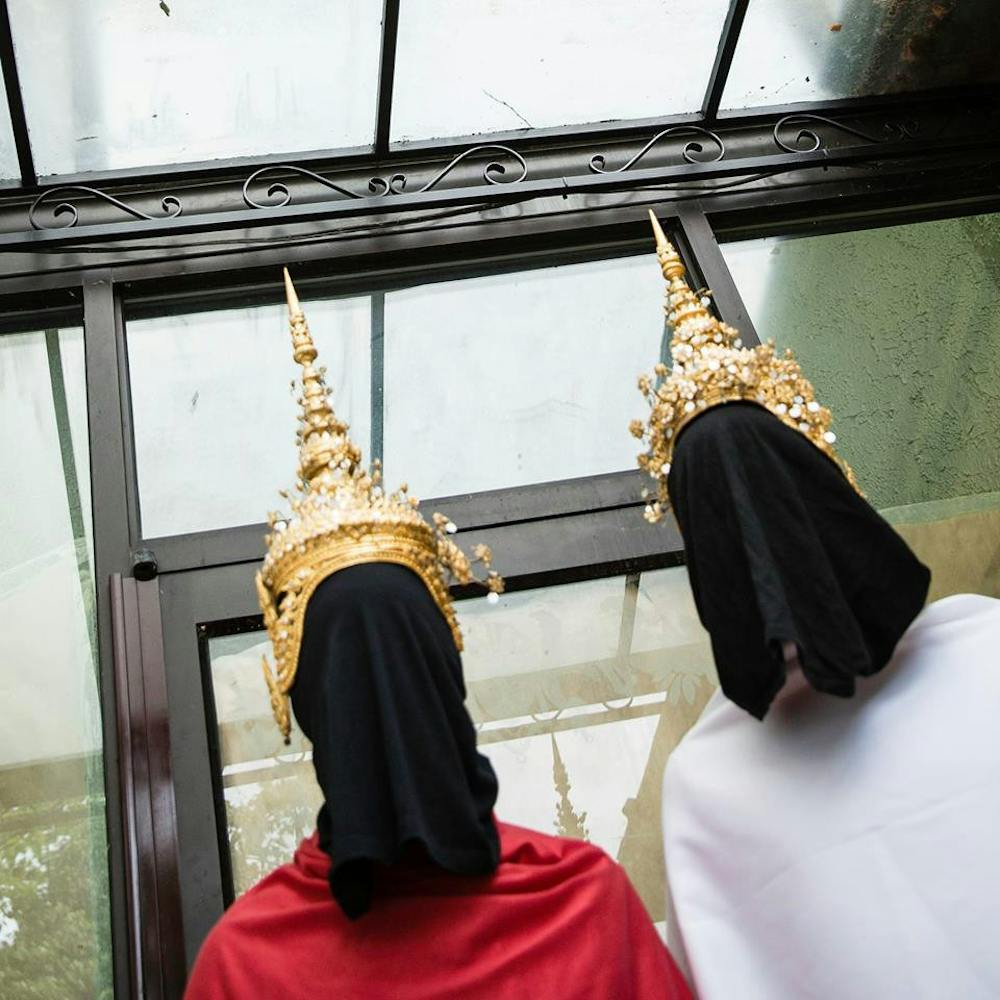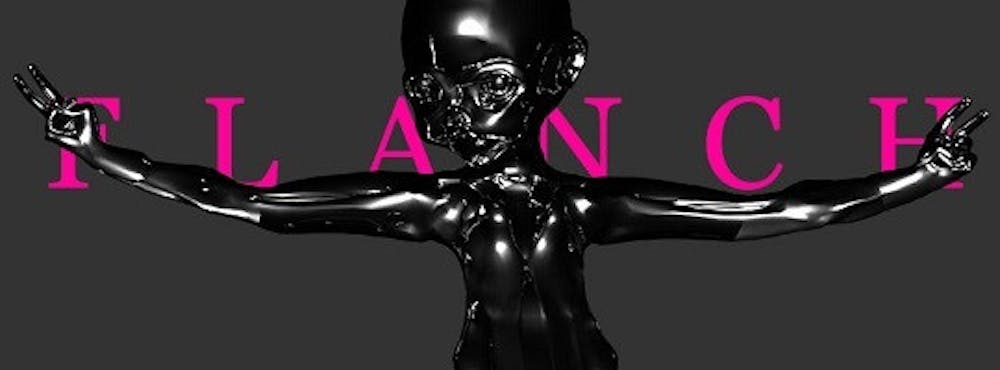FLANCH's debut self-titled album, released this past February on Darling Recordings, and it's a force to be reckoned with. Producers Peter Timberlake and Ben Peterson venture into the depths of harsh, glitchy textures, experimental hip-hop and organic, heavyset rhythms (Not unlike Arca) and emerge with some really powerful musical statements. Thematically, the album deals with the internet, religion, and the intertwining of those two. It also features a lot of features and collaboration with other up-and-coming Indiana artists, including rapper Sirius Blvck, Devin Dabney, and fellow Darling Recordings member Stone Irr. Some of these collaborators will be joining the group for their live debut right here in Bloomington at The Bishop this Friday, alongside acclaimed Gary footwork producer Jlin (Planet Mu). In anticipation of what's sure to be a must-see show, Timberlake and Peterson answered some questions:
Q: How did FLANCH come to be?
In a manner of speaking, FLANCH began when we met in the first like 4 days of music school. We’ve really been doing projects ever since then. But we started making music under that name about this time last year, it began with a long free-flowing demo, and a general spirit of doing things just for the hell of it, and trying to make something really weird.
Q: Could you talk about how either or both of your experiences with religion contributed to any or all of the tracks on the album?
Yeah, religion sort of influences every aspect of my personality, especially music. Tbh, I have experience with a lot of diverse music, but the majority of my (Peter's) musical experience is with Christian worship music, pretty early in my life. I was sort of paraded around (consensually, to use a poetic term) by Christians who thought my Christian worship band was some combination of cute and good. There’s no question that that kind of adolescence could potentially fuck you up.
Q: Who would you cite as your biggest influences sonically, and what do you think those artists "gave" to your album or style?
Our music sounds like Arca’s music, yeah. But I hope it also sounds at times like Chris Tomlin, or David Crowder. I think Jesse Kanda was also perhaps a greater influence than Arca.
Q: What software do you use to produce, and what are your favorite plugins?
We used Logic 9 to make this one. Iris 2 played a role. Really though, with experimental electronic music, I don’t care about skill with using the technology as much as your skill with misusing it, or using tools in ways they weren’t designed to be made. I really love the idea of going the extra mile to break a plugin. That is, btw, the story of the TB303, a shitty guitar-accompaniment bass synth that inadvertently created techno.
Q: Tell me about your collaborative process with other artists. Do you write with your vocalist or feature present, or do you have them contribute to an already standing idea?
With Devin…. Sirius too, we just gave him really developed tracks, and he just ran with them. Devin somehow thrives in a really tight aesthetic space, so we were able to describe with a lot of detail what we were going for, and he generated a ton of stuff that was pretty much 100%-on-the-money and what we were trying to do. When we got his stuff back, we tried to be really sensitive to the flow of what he was doing, and adapt our arrangements to him. For the singers, we wrote the lyrics and they sang them (beautifully).
Q: From the cover art as well as the way you guys process the vocals featured throughout your album, it seems like you have an interest in digital distortion of the human form. Could you elaborate on how this concept is important to your album?
Yeah, I think with every good idea, its essential to have it *feel* right, even if you can’t explain it. It’s like when Stravinsky was writing the Rite of Spring, there is this really primal sounding section - he knew how it needed to sound, but had no idea how to notate it, or explain it in the written language that other musicians could understand. I’m not trying to liken myself to Stravinsky, but with the altered vocals, the cover art, the whole general thing, it just felt like it had meaning before any explanation could be made about it. But I think there might be some kind of hidden truth in there, who knows, more likely, it just looks cool.
Check out the music video for "pretty girl":






